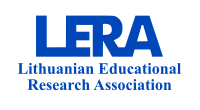Congratulations to the new PhD Aida Kairienė on the successful defence of her doctoral thesis.
Congratulations to the new PhD Aida Kairienė on successfully defending her doctoral thesis: The Rhizomatic Learning of English Among Upper-Grade Class Students (Education (S 007), Scientific supervisor – prof. dr. Natalija Mažeikienė) and obtaining the degree of PhD of Social Sciences in the field of Education.
The dissertation is avalable at the libraries of Vytautas Magnus University and M. Mažvydas National Library of Lithuania.
The dissertation is avalable at: 11 Studentų St., Academy, Kaunas district.
A brief annotation of doctoral thesis is presented below:
The dissertation aims to reveal the rhizomatic learning of English by upper-grade secondary students in non-formal and informal learning contexts beyond the classroom and the interaction and/or integration of these learning experiences into formal education. According to the researchers’ insights, rhizomatic learning is learning that uses Deleuze and Guattari’s (2004) concept of the rhizome to describe its features, where the rhizome grows in all directions, the middle of the rhizome is visible, but it is difficult to identify the beginning and the end of the rhizome (Cormier, 2008, 2011). In this way of learning, learners create a personal learning network and realise their needs (Lian & Pineda, 2014). The theoretical part deals with the philosophical, educational, and philological elements related to rhizomatic learning. The empirical research includes narrative inquiry, rhizoanalysis (Masny, 2015), and cartography. In this dissertation, narrative inquiry reveals the nature of language teaching and learning as an acquired experience (Barkhuizein et al., 2020; 2014; 2007). The cartography involved the construction of rhizomatic maps (Corner, 2011) and a rhizoanalysis based on rhizome principles disclosed by Deleuze and Guattari. This study demonstrates that rhizomatic learning occurs not only in the community, but also when learners build a personal learning network developing their English language skills through various activities. This development of learners’ personal rhizomatic learning networks allows them to identify ways and experiences of learning English in non-formal and informal learning contexts beyond the classroom, and enables teachers to integrate learners’ experiences into formal education.
Dissertation Defense Council:
Chair – prof. dr. Lina Kaminskienė (Vytautas Magnus University Academy of Education, social sciences, education S 007).
prof. dr. Nemira Mačianskienė (Vytautas Magnus University Academy of Education, social sciences, education S 007),
prof. dr. Nijolė Burkšaitienė (Vilnius University, social sciences, education S 007),
prof. dr. Lilija Duoblienė (Vilnius University, social sciences, education S 007),
prof. dr. Liudmila Rupšienė (University of Klaipėda, social sciences, education S 007).
facebooklinkedin


